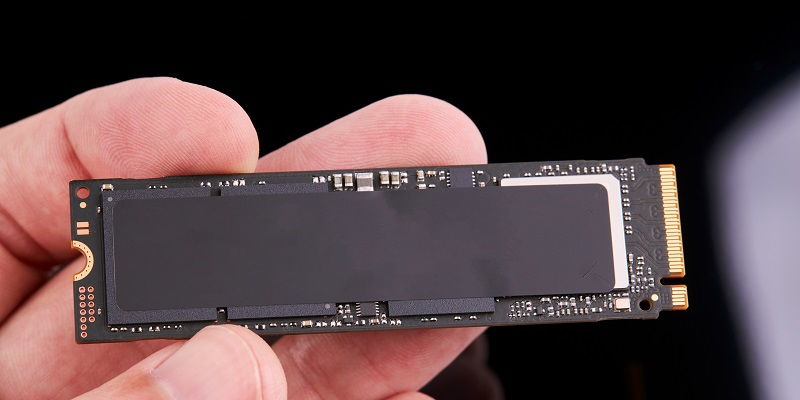Samsung has recently unveiled a highly anticipated addition to its lineup of NVMe SSD drives – the 4TB version of its flagship model. This release comes almost a year after the initial launch of the drive in smaller capacities. With this new offering, Samsung aims to cater to the demands of its enthusiasts and address fan feedback, making this a significant move for the hardware company.
Addressing fan feedback
It is rare to see a hardware company truly listen to its fans and provide them with exactly what they have been asking for. However, with the release of the 4TB version of their flagship NVMe SSD, Samsung has demonstrated a keen ear toward its customers. This move is a result of the company’s commitment to offering products that meet the needs and expectations of its loyal consumer base.
The Samsung 990 Pro Specifications
In November 2022, Samsung introduced the highly-anticipated Samsung 990 Pro. Renowned for producing the fastest NVMe SSDs in the industry, Samsung set high expectations for this new model. However, the company veered off the predicted path by making the 990 Pro a PCIe 4.0 drive instead of adopting the anticipated Gen 5 standard. Nonetheless, Samsung’s track record for delivering exceptional performance leaves room for excitement.
Impressive performance
Though Samsung deviated from the expected Gen 5 standard, the Samsung 990 Pro does not disappoint when it comes to performance. According to Tom’s Hardware, the drive’s sequential read and write speeds peak at 7,450 MB/s and 6,900 MB/s respectively, placing it at the top of what is achievable with a Gen 4 interface. Moreover, its random read and write speeds rival those found in Gen 5 devices, boasting an impressive 1.4 million random read operations per second (IOPS) and 1.55 million random writes per second.
Samsung has also claimed that the 990 Pro’s random read and write performance is 40% to 55% faster than its predecessor, the 980 Pro 2TB. This significant improvement ensures that users will experience lightning-fast data transfer speeds and responsiveness.
Reasonable pricing
In addition to its impressive performance capabilities, the Samsung 990 Pro comes with another pleasant surprise – its reasonable pricing. The base drive, offering 4TB of storage, comes with a price tag of just $345. For those seeking additional cooling and a touch of flair, the heatsink version is available for a mere $10 more. Samsung’s decision to offer such competitive pricing allows tech enthusiasts to experience top-tier performance without breaking the bank.
Compatibility and features
Samsung’s 4TB NVMe SSD is compatible with both PCs and laptops, making it accessible to a wide range of users. Furthermore, the company has confirmed that the drive is also compatible with the PlayStation 5, opening up possibilities for console gamers seeking improved storage solutions.
Furthermore, consumers have the option to choose between a standalone “naked” version or one equipped with a flashy heatsink design, complete with red lights on the M.2 2280 drive. This flexibility in design and features adds an element of customization to the overall package, appealing to different consumer preferences.
Samsung’s release of the 4TB version of its flagship NVMe SSD is a clear indication that the company is committed to meeting the demands of its fans. By offering impressive performance, reasonable pricing, and compatibility with a variety of devices, Samsung has delivered a product that is likely to be well-received by both technology enthusiasts and average consumers alike. With this release, Samsung solidifies its position as a leader in the NVMe SSD market, setting the bar high for its competitors.

